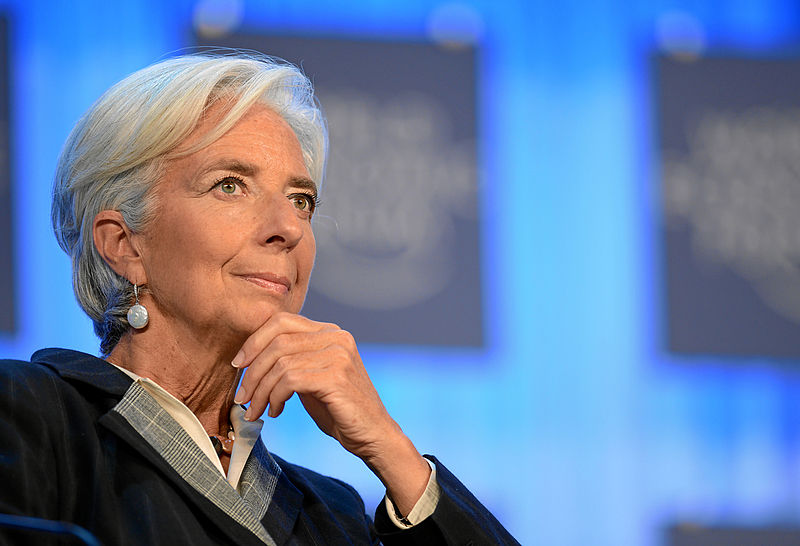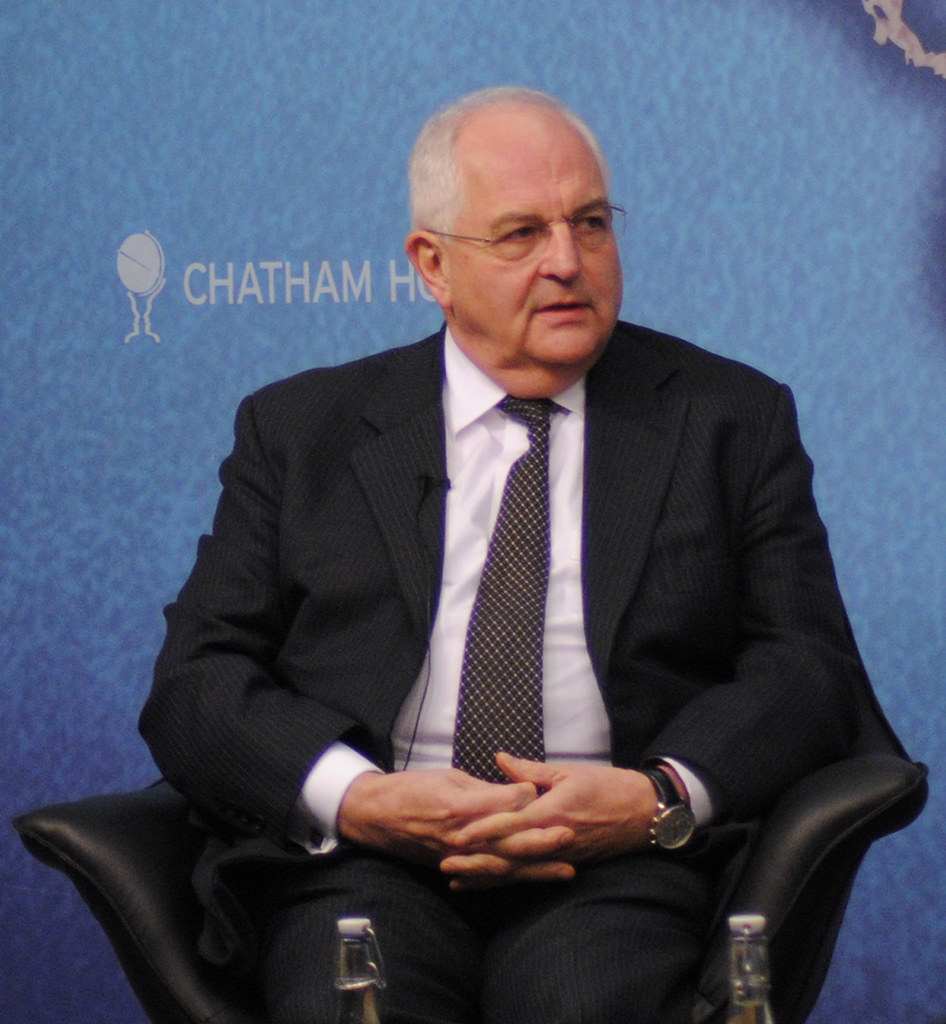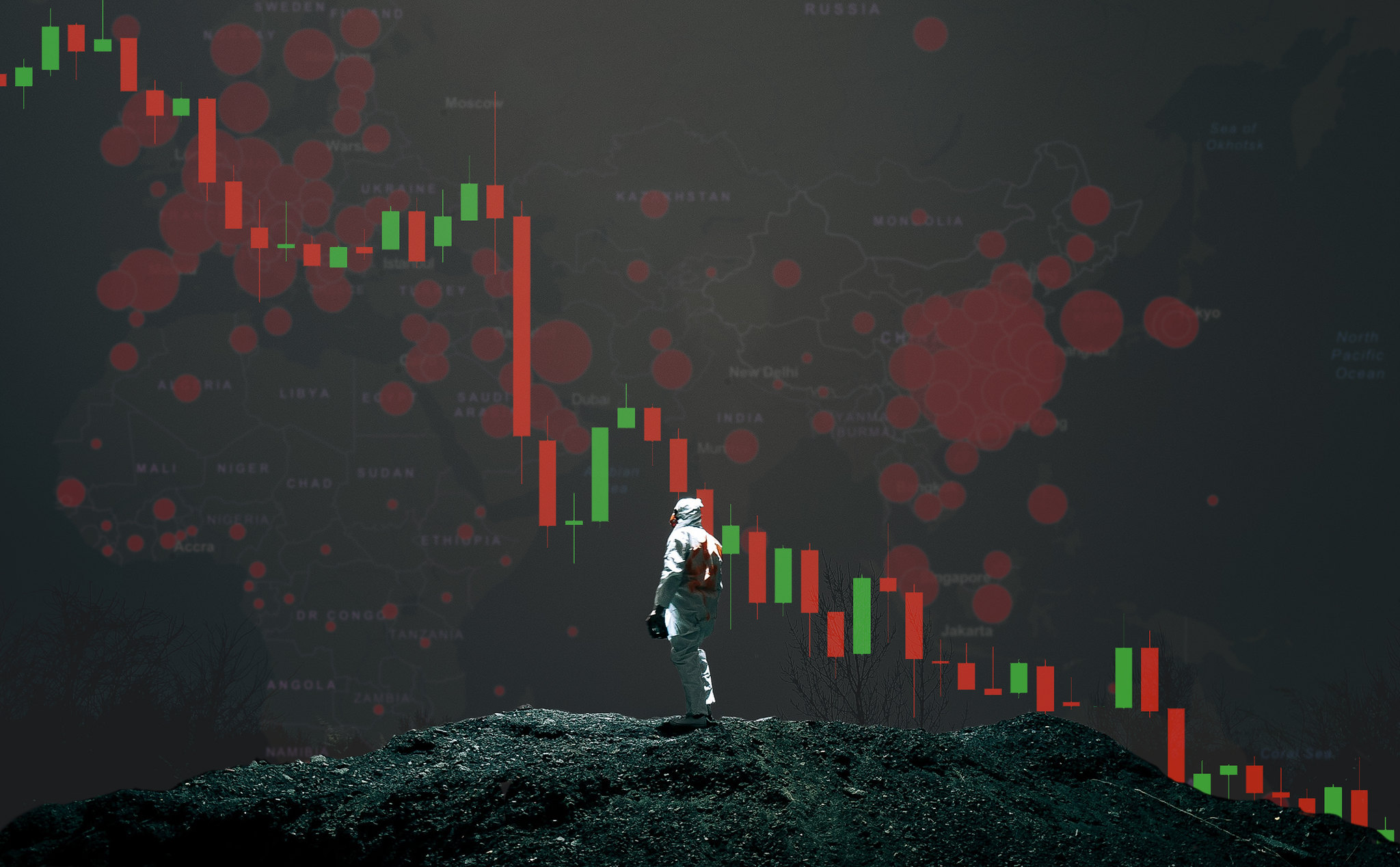The capitalists and the stock markets were breathing a sigh of relief as new economic figures showed a slowing of the rate of the decline in the world economy. However, none of the problems have been resolved and the inevitable uptick after the easing of lockdown will not alter the prospect of a deep economic, social and political crisis.
Recent economic data brought welcome news for embattled businesses around the world. IHS Markit’s Purchasing Managers’ Index, which gives an indication of whether companies are spending more or less, has risen from its historic lows. So, whereas IHS's US index was 27 in April and 37 in May, it now stands at 47. That is getting close to the 50 mark, and anything above 50 would indicate expansion, rather than contraction. The figures are similar for other countries, with the index rising for all major economies.
Similarly, the jobs market seems to be improving, with the unemployment rate declining to 13.3 percent in the US from 14.7 percent in April (which was a post-war record). Consumer spending is increasing, and is now only 8.9 percent down, compared to some 33 percent in April. These figures don’t really tell us much about the general health of the economy. A certain recovery is inevitable, given that the lockdown meant an enforced reduction in economic output.
Somehow, the stock markets have managed to rally over the past few weeks, encouraged by the easing of the lockdown and the recent figures. Yet, that merely reveals how divorced the movement of the stock exchange has become from the developments in the real economy. The question isn’t whether the economy will see an increase in GDP, consumer spending etc. after lockdown measures are lifted but how fast and how far the economy will recover. Even with some recovery in the second half of the year, the figures are dire.
The IMF released their World Economic Outlook report on 24 June, where growth expectations were significantly revised downward from their April report (we commented on that report in April). Whereas in April the IMF was predicting a contraction of 3 percent of world GDP, it is now predicting a contraction of 5 percent, which is the worst since the 1930s. According to this forecast, the advanced economies will be worst affected, with a drop of 8 percent; France, Italy and Spain face a 13 percent contraction. The figures are far worse than 2009, which in themselves were a massive shock. This is, as the IMF itself calls it, “a crisis like no other”.
Wishful thinking
 Christine Lagarde, the head of the ECB: “this is the sharpest and deepest recession ever recorded in non-war time” / Image: WEF
Christine Lagarde, the head of the ECB: “this is the sharpest and deepest recession ever recorded in non-war time” / Image: WEF
However, it is clear from their projections and analysis that the IMF wrongly perceives this crisis to be caused by the coronavirus. Therefore, they also envisage a recovery once the lockdown measures are lifted: basically a return to the kind of growth figures we saw before the present recession. They are predicting 5.4 percent growth of world GDP in 2021, which is almost twice the rate at which the world economy was growing in 2019, and bigger than the recovery in 2010, after the 2009 recession. Basically, the IMF is predicting that the economy will have recovered to its 2019 level sometime by the end of 2021. This idea, that we are approaching something akin to business as usual, regardless of the specifics of the growth figures, must be considered wishful thinking.
A number of factors are now pointing against a quick recovery. At the press conference, the IMF chief economist, Gita Gopinath, was full of confidence in the significant room for manoeuvre in both fiscal and monetary policy. Yet, in reality, the central banks have very limited abilities to stimulate the economy with historically low interest rates. In most advanced capitalist economies, the central bank lending rate is now at zero or just above zero. The only way out is quantitative easing. The ECB pandemic response programme, for example, is already at €1.35tn: almost twice the €750bn originally planned. Right now, consumer and company spending have taken a massive hit and the risk of inflation is limited, but as circumstances change, there is only so much money you can print before you create runaway inflation.
The other lever the state has to try to improve the economy, fiscal policy, is being used even more than during the last crisis. At that time, Gordon Brown proudly announced that the G20 would spend $5tn to stimulate the economy. This time around, the G20 have already announced spending of $10tn, or around 12 percent of GDP. Responding to a Chinese journalist, Gopinath warned that there are limits to how much money governments can spend before it becomes unsustainable. Indeed, without the central banks, particularly the ECB, buying up government bonds, the borrowing of governments would have already hit that ceiling. For the ex-colonial countries with weak currencies, this method is impossible, and 70 countries have already asked the IMF for assistance.
The US budget deficit is forecast to be 24 percent of GDP this year and 12 percent next year, a return to “normal”. The total debt of the advanced economies will be 131 percent of GDP at the end of the year, with the US on 141 percent. How long can this be kept up? As long as the central banks are providing a continuous flow of money, it will be fine, but if that stops, the markets will sour very rapidly. In fact, the economy has been completely addicted to cheap credit, without which it could no longer function.
The problem of state debt
The reality, as Christine Lagarde, the head of the ECB put it last Thursday at a meeting with European Business Leaders, is that: “this is the sharpest and deepest recession ever recorded in non-war time”, after a fall of GDP of 16 percent in the Euro area for the first two quarters of this year. She said recovery will be incomplete; and airline, hospitality and entertainment will probably be hurt irredeemably. She also pointed to the stock exchange volatility index, which although down since April, remains at an elevated level.
At the same meeting, Martin Wolf also gave a sombre assessment of the situation:
“We are going to end up with colossally expanded central bank balance sheets. I think they will be manageable but I think they will be permanent, or at least a very long time. We are going to start looking more like Japan, and that’s pretty big.”
That is to say, quantitative easing is not going away, but is going to be a permanent feature, as the interest rate tool has become useless, and the economy is too depressed in order to allow the central banks to withdraw their assets.
“There is almost certainly going to be permanent economic costs. That is to say our economies collectively and individually will be smaller, probably significantly smaller a few years from now than what we thought they would be back in 2019.”
This has to be considered in the light of the loss already incurred as a result of the financial crisis. In the understated manner of economists, when dealing with the class struggle:
“And already we had suffered a large permanent loss, particularly in the West from the financial crisis and those losses are real and significant and will have to be borne by people, and the question of who bears them will be a central political question.”
And further:
“Public finances will be permanently worse, we will have far more debt and we are going to emerge from this, in my view, with significant structural fiscal deficits. How those are managed and how… those are managed… are going to be central political issues for the future and they are not going to be easy”
That is, how to deal with the debt (i.e who is to pay) will be a central political issue. This is a warning for the ruling class: pay attention to this question. It is reminiscent of the period before the French and the English revolutions, when the feudal state had amassed a vast amount of debt, which it was trying to make the bourgeoisie pay for. But it is not just the state that has accumulated huge debts, as Lagarde pointed out: “The level of debt is massively going to increase, and not just at the sovereign level, but also at the corporate level.”
This presents central banks with a real problem. Interest rates have to remain low. Wolf again puts his finger on the crucial question, when he points out that real interest rates in most major countries are negative and therefore pose no immediate problem for governments. However, if this changes, there will be huge problems very rapidly:
“If there’s a roll-over in the next ten years of most of this [sovereign] debt, at real interest rates of two or three percent, I think we’re going to be in unbelievably big trouble. And therefore, this simply cannot happen.”
The key for him is the governments need to issue 20-to-50-year bonds to lock in low interest rates, but although that might work for the governments of Germany, Britain or the United States, it would not work for Italy and Spain, and corporations and consumers do not, in general, face the same possibilities. So, to keep the economy from going off a cliff edge, the cost of borrowing has to remain extremely low. This is the legacy of the huge amount of debt accumulated over the past 40 years, and the settling of government debt will be an explosive question over the coming years.
COVID-19 still spreading
 The infection has only gotten started in large parts of the world / Image: pexels
The infection has only gotten started in large parts of the world / Image: pexels
It seems the financial markets and various commentators thought that the virus problem had now been solved. However, the number of cases in the US has just spiked, following the lifting of lockdown, including in the most populous states: California, Texas and Florida. In most of the south and the west of the country, the rate of infection is accelerating. To avoid infections spiralling out of control, many states now have been forced to reimpose lockdown measures to try to contain the disease. Furthermore, the infection has only gotten started in large parts of the world.
The economic fallout from the virus is not merely an effect of the measures taken by the state, but the spreading of the virus has a dampening effect on consumption regardless. Clearly, people worried about catching the virus will avoid the very same places that authorities could potentially close. As a result, consumer spending in those US states where the virus spreads rapidly have seen consumer spending stagnate or even fall over the past couple of weeks, despite the gradual easing of restrictions. This is also reflected in the number of hours worked, which has been falling since mid-June in a number of US states. So, lockdown or no lockdown, the economy will take a severe hit.
An acute crisis of overproduction
It is testament to the absurdity of capitalism that people not turning up to consume products and services will threaten the whole economy with collapse. In any other society, surplus production would have been something to celebrate, meaning storing up for a rainy day or having spare time, but under capitalism it is a disaster.
It is not just that the bosses are now demanding workers go out to work (most workers continued to work during the pandemic in any case), but they also have to go out to consume. They are very worried that workers are now saving too much, whether from lack of opportunities to consume, or from worrying about the future. Over the course of the pandemic, savings rates have grown by 136 percent in the Euro area.
Unsurprisingly, the worst paid workers are the ones that have been continuing to consume the largest share of their wages. After all, for these workers, very much more money would be spent on day-to-day essentials, like food and housing, and much less on restaurants, entertainment and holidays.
For some decades, Japan has been facing such an ongoing crisis of “too much” savings, and a corresponding stagnating economy (only reaching 1 percent growth, even in booms), as Japanese people simply aren’t spending enough. Martin Wolf commented on this in relation to the crisis that the world is facing:
“Japan suffers from absolutely structurally deficient demand… I think that is quite possibly going to be the global condition so I don’t think it’s inconceivable that we are going to look quite Japanese for a really long time. It is not certain, but it is possible.”
Such a development would spell a period of long-term stagnation for the world economy and, as in the case of Japan, massive state debts, as governments attempt to make up for the lack of demand in the economy. For all their speeches on the virtue of saving for a rainy day, the capitalist system demands that the workers take on an irresponsible amount of debt: it cannot keep functioning otherwise. Should that layer of the working class that has some discretionary spending choose to become more frugal, capitalism is in deep trouble.
The end of globalisation
 Ted Grant pointed many times to the role that the expansion of world trade played in the development of the economy after WW2 / Image: own work
Ted Grant pointed many times to the role that the expansion of world trade played in the development of the economy after WW2 / Image: own work
Ted Grant pointed many times to the role that the expansion of world trade played in the development of the economy after the war. In 1997, he wrote:
“In reality, in this period, the capitalist system went beyond its own limits, through credit, indebtedness, Keynesian deficit financing and so on, and in particular through the development of world trade which partially and for a temporary period permitted the bourgeois to overcome the limits of the nation state.” (‘The First Tremors – An analysis of the global economic situation’)
The two main obstacles to the development of the economy are indeed private property and the nation state, the latter of which was partly overcome by the development of world trade. Although the development was delayed, through a continued massive expansion of credit, the document was correct in the direction of travel, and what would have happen in the event of a slump. It continued:
“However, we now enter into a new and very different period, a period of storm and stress and convulsive crises in the economy, society and politics. All the factors that combined to produce the upward spiral of growth will dialectically turn into their opposite. Above all world trade, which acted as a powerful spur to growth and investment, no longer has the same effect.”
This is precisely what the bourgeois is now afraid is taking place. Lagarde explained: “It is likely trade will be significantly reduced and it is likely as a result that productivity will be impaired unless it is pushed by other factors”. That is to say, international competition leads to investment, which raises productivity. So, unless other factors come into play, and she doesn’t seem to have any suggestions what those factors might be, productivity will stop rising or decline as a result of the fall in world trade.
Martin Wolf agrees with her assessment:
“[W]e are probably going to see a permanent change in the openness of the world economy, a shift against globalisation, at least in terms of things. All sorts of reasons: security, the nature of the economic shock, the rise of protectionism and so on… It is reasonably clear that the world we will re-emerge into… will look really quite profoundly different from the world we thought it would be a year ago or even four or five months ago.”
The coronavirus is having a particularly devastating effect on international trade, but it merely accelerated a development that we have been detailing for some time, including in May last year, when we detailed the protectionist measures taken by the main imperialist powers. Obviously the apologists of capitalism would like to forget that all this was taking place before the coronavirus, in the hope that it might somehow be resolved after the pandemic has passed. Still, as we’ve seen, the more farsighted have to admit that things will not return to the way they were, but they do not draw the necessary conclusions.
The new normal
 Martin Wolf, FT: "Public finances will be permanently worse, we will have far more debt and we are going to emerge from this... with significant structural fiscal deficits. How those are managed [will] be central political issues for the future" / Image: WEF, Flickr
Martin Wolf, FT: "Public finances will be permanently worse, we will have far more debt and we are going to emerge from this... with significant structural fiscal deficits. How those are managed [will] be central political issues for the future" / Image: WEF, Flickr
If you read the comments of politicians, economists and commentators, at least the serious ones, it is clear that we’re entering into a new period. The IMF talks of a “swoosh” recovery, like the Nike logo. Christine Lagarde talks of “restrained” recovery. What they can all agree on is that the recovery is not going to be swift, and that things will not go back to the way they were even six months ago.
With every new blow to the world economy, we’re asked to lower our expectations of what capitalism can achieve. Now, Martin Wolf talks of a global situation like that of Japan, with chronically low growth, so low it is difficult to distinguish from stagnation. For one country to go through that is bad enough, when it’s the whole world economy, it’s a disaster.
Capitalism can only justify its existence by constantly developing the productive forces, by constantly developing productivity: by raising the productive potential of the economy. It really is otherwise a blatantly bankrupt system, as John Maynard Keynes recognised when comparing it to the Soviet Union in the 1920s. It could only maintain itself by seemingly constantly being able to provide better standards of living, at least in the imperialist countries.
Now that is finished. The handling of the pandemic has been a calamity, with over half a million dead, as government after government prevaricated about implementing measures, and the situation is still getting worse. But the economic system hasn’t just been incapable of preventing the infection from spreading, but has also prepared a quite avoidable economic calamity.
Capitalism can give nothing to the working class, except cuts. Now, mass unemployment is knocking on the door, starting in the service sector. Employers are going to ask workers to accept cuts to their terms and conditions in order to save ailing (and not-so-ailing) businesses. At the same time, what remains of the welfare state is going to come under relentless attack as governments attempt to repay the vast debts that governments are accruing by propping up the system. This will inevitably provoke an unprecedented wave of class struggle, which will put into question the capitalist system as a whole. It will pose the question clearly: socialism or barbarism. And that is the choice before humanity.

